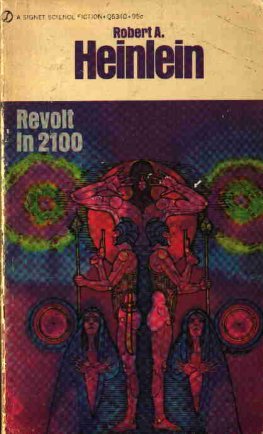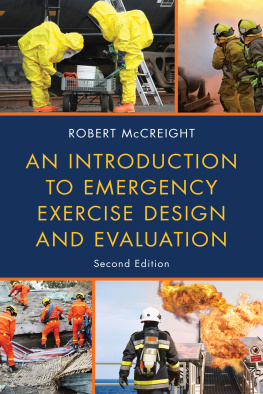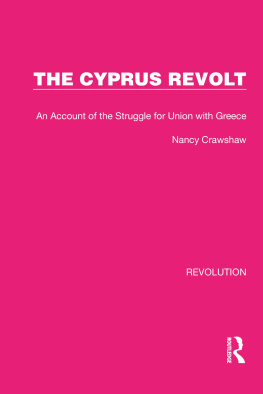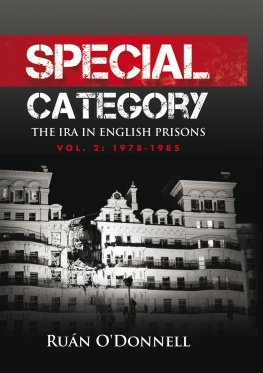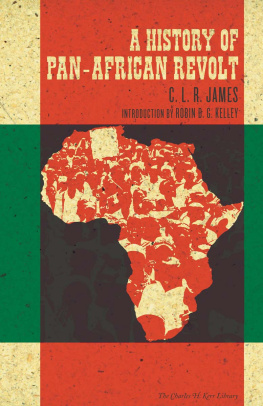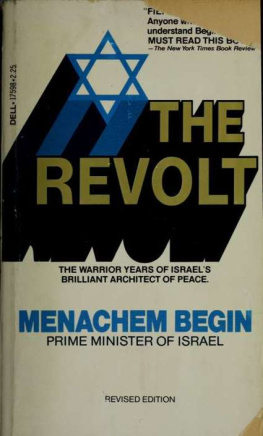Robert Lumley - States of emergency : cultures of revolt in Italy from 1968 to 1978
Here you can read online Robert Lumley - States of emergency : cultures of revolt in Italy from 1968 to 1978 full text of the book (entire story) in english for free. Download pdf and epub, get meaning, cover and reviews about this ebook. City: London, Italia, New York, N.Y, year: 1990, publisher: Verso, genre: Politics. Description of the work, (preface) as well as reviews are available. Best literature library LitArk.com created for fans of good reading and offers a wide selection of genres:
Romance novel
Science fiction
Adventure
Detective
Science
History
Home and family
Prose
Art
Politics
Computer
Non-fiction
Religion
Business
Children
Humor
Choose a favorite category and find really read worthwhile books. Enjoy immersion in the world of imagination, feel the emotions of the characters or learn something new for yourself, make an fascinating discovery.

- Book:States of emergency : cultures of revolt in Italy from 1968 to 1978
- Author:
- Publisher:Verso
- Genre:
- Year:1990
- City:London, Italia, New York, N.Y
- Rating:4 / 5
- Favourites:Add to favourites
- Your mark:
- 80
- 1
- 2
- 3
- 4
- 5
States of emergency : cultures of revolt in Italy from 1968 to 1978: summary, description and annotation
We offer to read an annotation, description, summary or preface (depends on what the author of the book "States of emergency : cultures of revolt in Italy from 1968 to 1978" wrote himself). If you haven't found the necessary information about the book — write in the comments, we will try to find it.
Robert Lumley: author's other books
Who wrote States of emergency : cultures of revolt in Italy from 1968 to 1978? Find out the surname, the name of the author of the book and a list of all author's works by series.
States of emergency : cultures of revolt in Italy from 1968 to 1978 — read online for free the complete book (whole text) full work
Below is the text of the book, divided by pages. System saving the place of the last page read, allows you to conveniently read the book "States of emergency : cultures of revolt in Italy from 1968 to 1978" online for free, without having to search again every time where you left off. Put a bookmark, and you can go to the page where you finished reading at any time.
Font size:
Interval:
Bookmark:
OCRed for libcom.org by Linda Towlson.
Epub, Mobi and PDF by www.luxurycommunism.tumblr.com
Unfortunately footnotes were not available in this online version except for certain sections. You'll need to refer to the hardcopy.
The bulk of this book was first written as a Ph.D. thesis (finished in 1983 with the title Social Movements in Italy, 1968-78) at the Centre for Contemporary Cultural Studies, at the University of Birmingham. The research work was done in Milan in the late 1970s and early 1980s. Although that work has been revised and updated, my debts go back to my time in Birmingham and Milan. It was the support and good company of Charlotte Brunsdon, Myra Connell and Janice Winship which made it possible to sustain momentum when writing. I want also to thank Paul Ginsborg, who gave me invaluable help and advice when it was most needed, Liliana Grilli for her kind hospitality in Milan, and Antonietta Torchi for continuous encouragement and ideas. Whatever the value of the book for others, for me the experience of writing it has been important in introducing me to Italian people and their culture. For this I am deeply grateful to Italian friends, and to all those who helped me so generously with my research. Finally, Id like to say how much I owe to Richard Johnson, who was a stimulating and caring supervisor, to members of the Magpie discussion group, especially Martin Chalmers and John Solomos, and to Malcolm Imrie of Verso, without whom this book would probably have remained a thesis. While I am responsible for what has been written (warts and all), I hope that those who have given me a hand will find something in it which will interest them.
The author and publishers would like to thank the following for their kind permission to reproduce illustrations: Alfredo Chiappori (In the commune..., Calm down..., Culture must be defended); Altan/ Quipos (The cost of living..., Hello...); Giorgio Forattini (I was white..., Marx crucified); and Elfo (Identities, Secrets). Every effort has been made to trace the copyright holders of illustrations: we must apologize to those we have been unable to contact.
Since the reader may not be familiar with the trade unions and political organizations in Italy, which are often referred to in the text using abbreviations (e.g. PCI, instead of Italian Communist Party), this glossary provides a brief guide. It is not comprehensive, but covers those organizations most frequently mentioned.
The Unions
Italian unions are divided into three confederations: Confederazione Generale Italiana dei Lavoratori (CGIL) Confederazione Italiana dei Sindacati Liberi (CISL) Unione Italiana del Lavoro (UIL)
Each of these in turn is divided into categories according to industry (hence FILTEA-CGIL is the textile workers category).
CGIL is the biggest trade union organization, with 2 and a half million members in 1968. Communist and Socialist parties (2/3rds and 1/3rd respectively) are heavily, though not exclusively, represented at all levels.
CISL is the second union organization with about 1 and a half million members in 1968. It was formed as a result of a breakaway from the CGIL in 1948 and for many years it was dominated by the Christian Democrats, though its basis is not confessional.
UIL is the third union, with about half a million members in 1968. It includes Socialists (45%), Social Democrats (30%) and Republicans (25%) in its leadership.
In the engineering sector attempts to overcome this tripartite structure saw the establishment of the Federazione Lavoratori Metalmeccanici (FLM) in 1972, but the majority of members belong first to an affiliate category and those who only hold cards of the FLM are a minority. The affiliate categories are:
FIOM (Federazione lmpiegati Operai Metallurgici) is composed of engineering manual and white-collar workers and is part of the CGIL. In 1968 it had 271,000 members.
FIM (Federaziane Italiana della Metallurgia) is part of the CISL. In 1968 it had 170,000 members.
UILM (Unione Italiana dei Lavoratori della Metallurgia) is part of the UIL. In 1968 it had 103,000 members.
ACLI (Associazioni Cristiane Lavoratori Italiani) was founded in 1944 to organize Catholic workers separately from the CGIL. Dominated by Vatican and Christian Democrat Party influences, the ACLI became more independent in the late 1960s.
MO (Movimento Operaio) is the generic term meaning the official workers movement. Its British equivalent would be the labour movement
Workplace Representation
Internal Commission (Commissione Interna) factory-based representative bodies elected by all workers irrespective of union membership. Their bargaining role was heavily circumscribed and by the late 1960s they were often out of touch with shopfloor opinion. Hence their replacement by Factory Councils post 1969.
Delegates (Delegati) the nearest British equivalent is the shop steward, but they do not in the Italian case necessarily belong to a union. They are elected representatives who came into being during the Hot Autumn mobilizations, and were later made official.
Factory Council (Consiglio di Fabbrica) the successor to the Internal Commission, it is composed of delegates and represents all workers in a workplace. Set up in the wake of the Hot Autumn, it was, however, much more firmly based on the shopfloor.
CUB (Comitati Unitari di Base) rank-and-file workers organizations set up independently of the unions in 1968-9, mainly in large factories in the North. After 1969 they were increasingly dominated by political organizations.
Zone Council (Consiglio di Zona) set up in the early seventies as part of the unions campaign for social reforms. They were composed largely of delegates from Factory Councils in an area. However, the Zone Councils remained on the drawing-boards, and never took root.
Employers Associations
Confindustria (Confederazione dellIndustria Italiana) is the organization of private employers, although up until 1969 it also represented the state sector.
lntersind is the body representing state sector employers.
Political Parties
DC (Democrazia Cristiana) has been the party of government since 1948. Its membership is almost exclusively Catholic and its support comes from different classes, although its policies have favoured free enterprise capitalism. In May 1968 it won 39% of the vote, and 266 seats in the Chamber of Deputies.
PCI (Partito Comunista Italiano) the largest working-class party with a membership of 1 and a half million in 1968, and 27% of the vote and 177 seats in the May 1968 election. It was in the government from 1945 to 1947, but otherwise represented the main opposition force. The party paper is L'Unita'.
PSI (Partito Socialista Italiano) the first workers party in Italy, was greatly weakened by fascism. In 1947 a social democratic grouping broke away, rejoined the party in 1966 and then left again in 1969. In 1968 it got 15% of the vote and 91 seats in combination with the PSDI. The PSI participated in government from 1963 to 1972. The party paper is LAvanti.
MSI (Movimento Sociale Italiano) a fascist party. It got 4% of the vote in 1968, and 24 seats.
PRI (Partito Repubblicano Italiano) a historic lay centre party which took part in the Centre-Left government from 1963. It got 2% of the vote in May 1968, and 9 seats.
PLI (Partito Liberale Italiano) a historic lay right-wing party. It got 6% of the vote in May 1968, and 31 seats.
PSDI (Partito Social Democratico Italiano) a breakway from the PSI. In the April 1963 election it got 6% of the vote, and 33 seats.
PSIUP (Partito Socialista di Unita' Proletaria) was a left-wing split from the PSI following its entry into government in 1963. Its strength was in the CGIL. In May 1968 it got nearly 5% of the vote, and 23 seats.
Font size:
Interval:
Bookmark:
Similar books «States of emergency : cultures of revolt in Italy from 1968 to 1978»
Look at similar books to States of emergency : cultures of revolt in Italy from 1968 to 1978. We have selected literature similar in name and meaning in the hope of providing readers with more options to find new, interesting, not yet read works.
Discussion, reviews of the book States of emergency : cultures of revolt in Italy from 1968 to 1978 and just readers' own opinions. Leave your comments, write what you think about the work, its meaning or the main characters. Specify what exactly you liked and what you didn't like, and why you think so.

